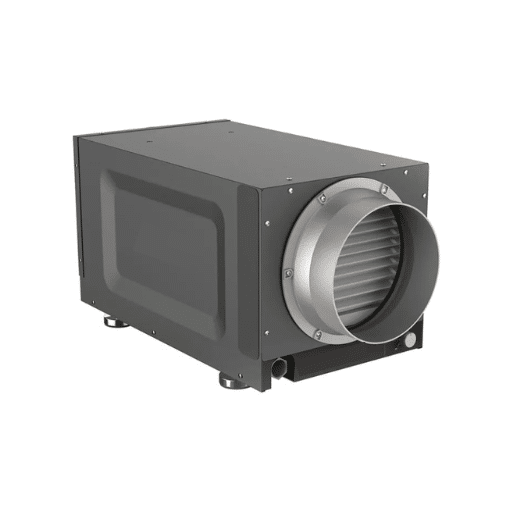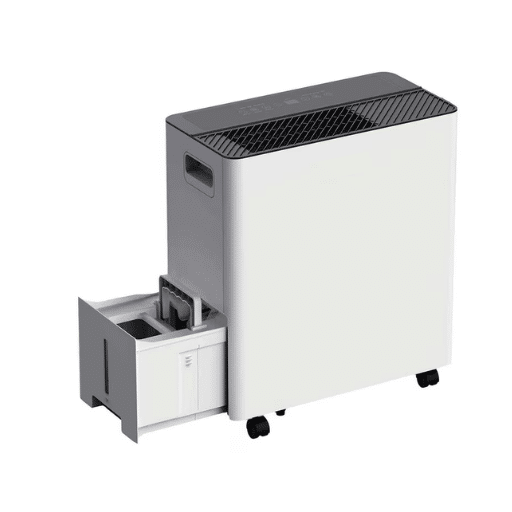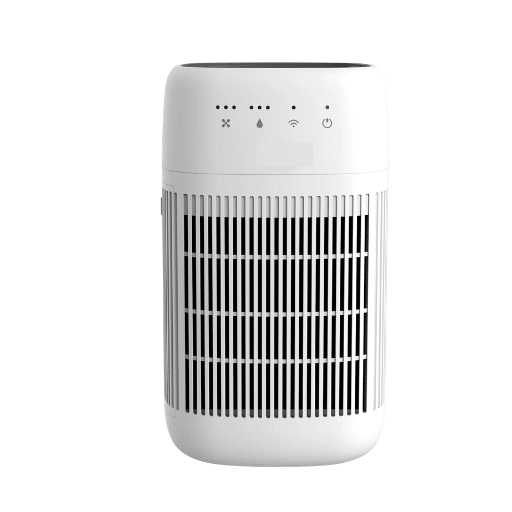Cooling and humid reduction of the house is due to modern equipments such as an air conditioner (AC) and a dehumidifier. These devices were made for comfort but for different reasons, also they function differently. Therefore, which one should you choose? This article looks at the difference between AC and dehumidifier and examines how they both work and their harmonious relation as well as difference between air conditioner and dehumidifier. If you are dealing with extremely hot weather and need some barragement or looking at how you can ensure your surrounding has proper air quality, this paper is helpful for you. Keep reading as we go over the basics and show why the two cannot be used in the same manner.
Introduction to Humidity Control
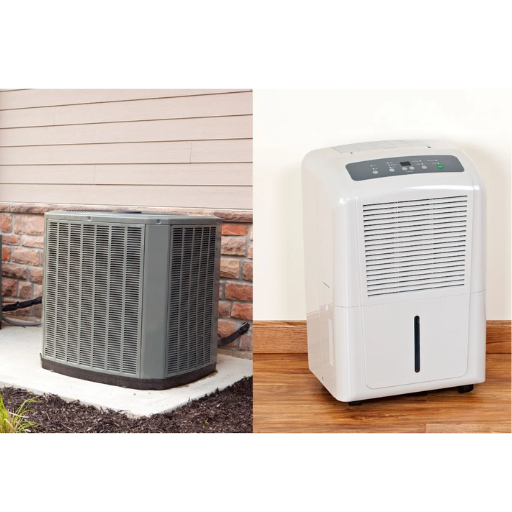
It is critical to have control over the level of moisture in the room to enable people to live in optimal comfort and health. High humidity levels have their disadvantages as well because they contribute towards discomfort, encourage the growth of mold, and damage several materials whereas, low levels cause no damage, but they lead to dry skin and difficulties in breathing. In most cases, the humidity is controlled through certain conditions when air conditioner works as a cooling device and people take out the moisture or dehumidifiers are decimated which help in removing the excess moisture in the air. And while we can use both ac vs dehumidifier to protect air, their functionality is not the same. The decision in most of these cases is whether it is more of a need to eliminate heat or moisture.
What is Humidity?
The key factor in air that people are mostly referring to when they say “moisture” is the level of humidity. To an extent it regulates the weather experienced by people and the benevolent or malevolent nature of that weather. There are several measures of humidity. The most popular measure is relative humidity, which describes how much water vapor is present in air, relative to the maximum that that air can hold at that temperature. More water in the air or high humidity level makes hot weather even hotter and creates a sweaty feeling without water. On the other hand, low humidity acts in the opposite manner. Looking at the trend, one can easily deduce that most peoptere are attracted by the search for the promotion in health and comfort of building causes humidity. Not to mention humidifiers, dehumidifiers and other devices used to control indoor moisture levels. The level of air moisture indoors should be as close to 30-50% relative humidity as possible, in order to be comfortable and healthy and avoid such problems as dry air and mold growth.
💡 Key Point:
Ideal indoor relative humidity should be maintained between 30-50% for optimal comfort and health.
Importance of Humidity Control
Controlling indoor humidity is important and serves its protective purpose in the health of ailments and other bodily reactions. Indeed, there is growing alertness to this concern as Google Trends has in most recent times been showing that understanding, finding and analyzing the levels of indoor humidity has suddenly become more prudent as it affects directly the state of the air alongside the body. Too much or too little humidity builds the following problems. On the one hand, excessive io deals with humid conditions can result in mildew which is associated with risk of breathing related disorders while on the other hand, insufficient humidity is known to dry the skin, make the eyes water, and be bearable on it. On top of that, furniture, electronics and even walls in certain cases may be affected when the levels are poorly maintained. An ideal level of indoor relative humidity ranges between 30%and 50%. If it is too high, health is compromised and so is comfort and but also other articles including furniture and furniture do not last that long. It is for that reason why most homes now have humidity control in place.
Overview of AC Units and Dehumidifiers
AC (Air Conditioning) units and dehumidifiers are important household appliances that contribute to improving the indoor climatic environment effectively. Air conditioners usually deal with the temperature by cooling air at the same time some amount of moisture is also removed along in the process of cooling. But they do not provide efficient control of overriding levels of the humidity. Rope in dehumidifiers which are crafted to specifically cut down moisture in the air, attend to the issues of excess humidity in the atmosphere and thus ease breathing, reduce chances of mould growth in furniture and gadgets and prevent moisture from reaching them.
How Dehumidifiers Work
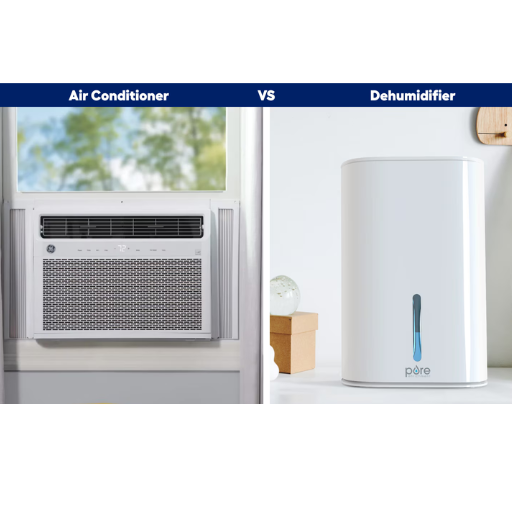
To absorb moisture, a dehumidifier first attracts the air from outside and circulates it in a refrigerated coil. The principle is the same as that of an air conditioner; when the hot saturated air contacts an extremely cooled coil, the water vapor condenses to form water droplets which are collected in a tank or discharged outside. Thereafter, the dry air is warmed up a little bit and pumped back to the room. Present-day dehumidifiers have advanced functionalities, for instance, humidistat, that renders their users the ability to, at will, adjust and maintain a particular relative humidity. There are also modes which economize power usage when the unit is on. Furthermore, there are some dehumidifiers, which have air conditioners, aiming to reduce humidity and provide clean and healthy air as a bonus.
Mechanism of Dehumidifiers
Condensation occurs when the dehumidifier takes in moist air from the room and proceeds to pass such air through a compartment endowed with a cooling coil. As a result of the cooling, the moisture within the air is transformed into liquid which seeps down a reservoir to be removed with the use of a drain while other substances such as ice remain in suspension. He treats the subject air again to avoid discomfort while releasing the cooled air into the space. Modern versions are more advanced and incorporate sensors for operation and accessorize a humidistat that allows the user to pre-set the relative humidity at the respective place. Other devices also allow energy-conservation and might double as combinations of various appliances such as air conditioning devices that may remove air pollutants, bacteria, and poll particles plus functioning as so devices. Thanks to these additions, moisture control is achieved without compromising air quality indoors hence creating a more healthful and welcoming atmosphere.
Energy Efficiency of Dehumidifiers
One technological advancement that has registered an encouraging improvement in dehumidifiers is energy consumption. One of these improvements has been the emergence of modern Energy Star-qualified dehumidifiers. Despite the high level of machine’s humidity removal capability, the amount electricity consumption of the previous generation machines, however, is much less when it comes to the newer generation dehumidifiers. For instance, these devices find a way to suck all the water out of the air but use very limited electricity to achieve that hence limiting costs at the end of the month. On top of this, several models offer programmable features with smart sensors that allow for automated operation based on the humidity level in the space within which a device is situated and this further decreases power usage. An analysis from search engines has shown that many users ask about for instance the cost savings in the long run in regard to this type of dehumidifiers and studies have shown that they can be used to cut down on energy consumption by 30% as compared to those which are not certified. Therefore, they are an attractive option to preserve the quality of air indoors at a modest cost.
⚡ Energy Savings:
Modern Energy Star-certified dehumidifiers can reduce energy consumption by up to 30% compared to non-certified models.
Benefits of Using a Dehumidifier
There are plenty of strong arguments for the use of dehumidifiers, especially in the light of modern data and the user queries, which are also determined by google trends. First of all, they are energy efficient. It is not at all surprising. In other words, research shows that a modern dehumidifier may use up to 30% less energy, which makes them an economically feasible option to improve the air quality indoors. These machines will also protect even the indoor environment from disturbances such as mold, which thrives best when there is a lot of moisture in the atmosphere, safeguarding one’s health and the house in the process. Comfort in the form of strict climate control is a concern for many consumers, as it additionally gains them money in the long run? Here, for instance, a very good hygiene ac vs dehumidifier argument can be used. There is already an answer to it – power consumption is substantially lower and a very powerful certified model limit the savings hence, there are very reasonable costs of employing such equipment. In fact, many customers do not even understand the cost of such efficiency and health provided ac vs dehumidifier.
How Air Conditioners Work
Refrigeration, airflow, combined with high technology, is a controlled air conditioner that adjusts the temperature, humidity, and towards the entire indoor air. Ac vs dehumidifier works by generating heat in a room and through refrigerants, which will go from liquid to gas and absorb the heat in the evaporator coil. The cool air is then supplied back into the room, and the absorbed heat in the air is disposed of outside the room using a condenser coil. In addition, the current generation of ac features include thinking temperature controls to save energy, hepa filters to enhance the air breathed, and smart systems that adjust accordingly to the prevailing environmental conditions.
Based on the most recent Google search reports, a lot of people want to know in detail what ac vs dehumidifier entail the effectiveness and cost aspects. There is a difference between an air conditioner and a dehumidifier because the former includes the latter’s function while the latter does not cool the room. Air conditioners, more particularly those tuned for energy conservation for instance those branded Energy Star, function within a reasonable price range while providing excellent comfort indoors. In addition, air conditioners particularly those that use green refrigerants and smart energy systems are designed to perform these services effectively and efficiently. The cost is often less of a problem when benefits over the longer term can be assessed.
Mechanism of Air Conditioners
Air conditioners function through the process of heat exchange, using the refrigeration cycle to provide cooling for the room. The fundamental parts of an air conditioner are made up of a compressor, refrigerant, condenser coil, evaporator coil, and an expansion valve. When ac vs dehumidifier is reviewed, working of air conditioning system begins at excessive temperature high pressure gaseous refrigerant compression. At this stage, this refrigerant is directed to the condenser coil, while the outdoor air takes heat away from the hot refrigerant, which saps the refrigerant down into a cooler liquid state.
Next, the refrigerant enters the expansion valve where its pressure lowers, transforming it into a cold liquid having low pressure. At the evaporator coil, the warm air within the area passes over the coil and from the heat of this air, the refrigerant takes over. Consequently, the air gets cool, then it is returned to the room. The refrigerant that has absorbed the heat then returns to the compressor and the cycle continues.
To offset the drawbacks of modern air conditioning, there is the need to advance its technology by introducing better efficiency methods. According to a springer publication, smart thermostats have been wearable and also incorporated with the aids of artificial intelligent for the purposes of saving power consumption and behavioral statistics, thereby solving the problem of heating. The use of smart technology has revolved around making ac vs dehumidifier better in time.
🔄 AC Refrigeration Cycle:
- Compressor compresses gaseous refrigerant
- Condenser coil cools and liquefies refrigerant
- Expansion valve reduces pressure
- Evaporator coil absorbs heat and cools air
- Cycle repeats
Energy Efficiency of AC Units
The recent developments in air conditioners include energy efficiency and innovative concepts in equal measure. In line with Google’s search trends, the latest available data indicates that the popularity of such cooling appliances with consumers is growing steadily. Today’s air conditioners make use of several techniques to enhance energy efficiency, which includes the utilization of variable-speed compressors, superior insulation, and advanced Classes of refrigerants. Such devices also come equipped with AI-powered thermostats which ensure exact cooling without any wasteful consumption Use of power. This brings in the concept of comfort without wastage – less comfort May mean less energy however this will be against the purpose. However, this advancement equally supports The need to ‘reduce carbon emissions and marry comfort with sustainability or energy efficiency in Joe’s case.
Benefits of Using an Air Conditioner
Another pleasurable aspect of running the ac in the house is the fact that the room gets cool irrespective of the temperatures outside. It also helps purify the air being circulated by getting rid of excess moisture, collecting the pollutants and keeping the surrounding fresh. Furthermore, today’s air conditioning systems have the advantage of having both energy-saving features and eco-friendly designs, which comforts me yet doesn’t consume much power and discourage the greenhouse gases as well.
Comparative Analysis: Dehumidifier vs AC
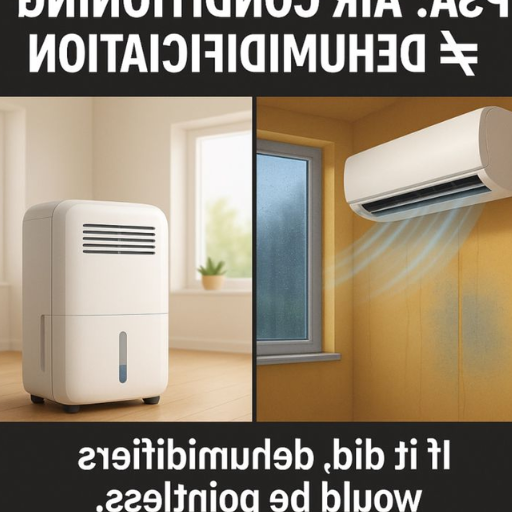
The major differences between an ac and a dehumidifier is in the functions, energy used, and the intended use. However, unlike the aforementioned devices, these ones work on twos different principles to control the primary factor – humidity indoors. While dehumidifiers work by sucking out moisture from the room, where excessive dampness could lead to mildew, decay or simply discomfort for people in a warm place, the above is appropriate for levels and moisture is beyond acceptable levels. ac vs dehumidifier, air conditioning systems do not only blow out cool air neither provides the same effects more simply than the latter either because it is used for cooling or as a backup substitute.
Survey shows that more electricity is used by air conditioners than by the dehumidifiers. Information drawn from search engine results of Google indicates that the common domestic dehumidifier consumes 300 up to 700 watts whereas the average air con will use about 1,500 to 3,500 watts depending on the size of the unit. Where only humidity control is required, dehumidifiers consume less energy. Nevertheless, in cases where both cooling and dehumidification are required, specifically in hot areas, the logical cooling option is the air conditioning unit.
Whichever the case, the preference for an air conditioner or a dehumidifier is based on the application. In regions which tend to be mild yet have high humidity, using a dehumidifier would be adequate. One the other hand, an air conditioner will be provide cooling capability besides lowering humidity which as a result is the most complete remedy in having an AC vs dehumidifier comparision in the hot humid areas.
Dehumidifier vs Air Conditioner: Key Differences
Air conditioners have many roles from dehumidifying air around rooms, to reducing temperatures and they work differently in different areas. The air-conditioning unit is meant to be installed if you are in a hot area that has a circulating air atmosphere outside and it controls the temperature by removing impurities. dehumidifiers are very much in demand for damp rooms and basements and when the place is over the ideal level of relative humidity. Senitographically it is important to remember that the operation helps to counter the growth of fungi, mold, bacteria and any other allergy causing growth. Nevertheless, it does not cool the air in any way.
An ac vs dehumidifier option on the other hand is available to lower indoor air temperature and moisture content, and not just the humidity levels. This means cold air is released around the house making it more suitable for hot weather and rainy seasons. Whereas the air conditioner helps to control humidity, it does not address humidity issues in the first place, but is aimed at accomplishing a different task which is cooling the affected area.
Recent reports on Google’s search engine trends have revealed that air conditioners are most frequently sought by users as a remedy to hot weather especially during summer months. When it comes to dealing with problems concomitant with humidity such as unpleasant smells, sweating walls or the presence of mold, more users show interest in dehumidifiers. The final decision on what better serves is problem-dependent; some situations require one tool vis a vis another—and often times one works where the other fails—thus leading to an ac vs dehumidifier comparison.
When to Use a Dehumidifier vs an AC Unit
🌫️ Use a Dehumidifier When:
- High humidity is the primary concern
- Temperature is comfortable but air feels damp
- Mold or musty smells are present
- In basements or poorly ventilated areas
- During cooler weather with high moisture
❄️ Use an AC Unit When:
- High temperatures are the main issue
- Both cooling and dehumidification needed
- During hot summer months
- In living spaces requiring comfort cooling
- When immediate temperature relief is needed
Based on statistics on Google trends it can be stated that many users are confused when they need to buy a dehumidifier and when an ac unit. A dehumidifier is more suitable where the primary concern is high relative humidity no matter the temperature of the air. For example, if there is dampness, mold, or a bad habit of musty smell, a dehumidifier may come in handy to lower the moisture content; thus, keeping you and your health safe. This is particularly the case when it is colder outside or in the cellars, which are often damp, hence, raising humidity even further.
On the contrary, AC would be the best answer as it is meant to cool the air and hence, during hot and humid summer it is more of used. Though cooling is usually associated with for example removing humidity or some moisture, this is not the major role of the AC. In situations where there is dry, hot weather, an AC will be useful instantly. But, when such temperatures still lead to re-evaporation of moisture or wetness remains in the air after cooling, setting up an air conditioner together with a dehumidifier would be the best option. Assessing the nature of the area one has and the moisture content present in such a space could provide the basis of whether to go for an ac vs dehumidifier.
Cost Analysis: Dehumidifier vs AC
While evaluating the expense of making use of a dehumidifier vis-a-vis an ac, certain points must be taken into account. Considerations of energy effectiveness, costs of acquisition and capital and operating costs have to be taken into account. Recent dehumidifiers are generally less expensive to acquire initially and go for 50$ to $300 depending on their functionality. Whereas air conditioners will generally cost higher starting at over $200 for general air conditioning portable units and going up to over $1,000 for split advanced air conditioning systems.
When it comes to writing, more often than not, dehumidifiers prove to be more cost efficient if one wants to do away with humidity. Their power application ranges from between 300 watts to 700 watts per hour ; unlike air conditioners which may fend off as much as 1,000 and 3,500 watts per hour resulting in the size of the machine and its temperature control capacity. This makes these devices ideal for areas in which air conditioning would be unnecessary but water has to be controlled.
Another important factor to keep in mind is the fact that an air conditioner has a dual function – it both cools the air and dehumidifies it to some extent. If there is a need for both air cooling as well as air dehumidification, the running costs of an air conditioner could be considered in comparison to the costs of buying and servicing a dehumidifier alone and hence could be considered a more cost effective option as well.
In the end, the ac vs dehumidifier choice is highly dependent on the requirements of a particular room, the weather conditions and level of affordability that is applicable. It is an obvious cost alternative for straight out moisture issues however, for cooling and moisture management in such situations particularly where there is great heat an air condition unit is more likely to be of economic benefit over a long period of time.
Use Cases for Dehumidifiers and AC Units
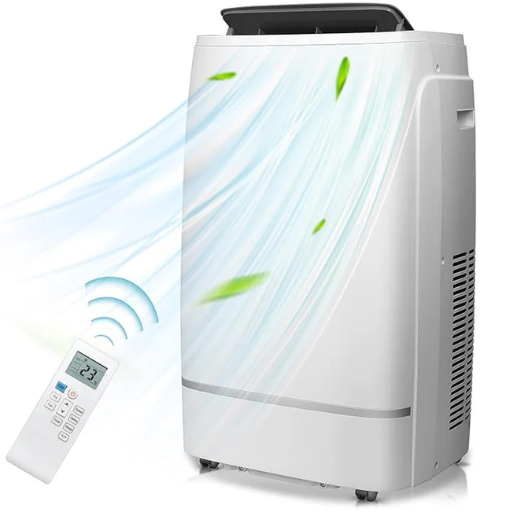
Particular focus of user of dehumidifiers is regions where humidity must be controlled. Dehumidifiers are very effective in helping to control the amount of moisture in basements, laundromats or even places that have a tendency to be wet and grow mold. In fact, it is favorable to use them as they can control the humidity of the environment in an equilibrium, such that excessive moisture does not lead to destruction or infestation of the home by mold. Additionally, the other group of devices is the air conditioner (AC) that has the ability to lower the temperature within the room. For instance, where it is hot and humid, then one has to look for an air conditioner that offers cooling instead of dehumidification as in the conflict that we have got of an ac vs dehumidifier.
When thinking about using both devices, the outcome may vary according to certain conditions of the environment. For example, in the course of hot weather months in places that have high humidity running and finding comfort with only either the AC or a dehumidifier may not be enough hence the need of having them both run concomitantly. Data recently obtained from Google’s search trend patterns indicate there is an upward trend on searches regarding dehumidifiers commercials with AC units alongside them, as this knowledge has become more popular. This approach can aid in enhancing the indoor environment, and if it is possible to effect humidity control, then it can also aid in the conservation of power by allowing the air conditioning system to function more efficiently. Perhaps in the case of denser environments, with high temperature and humidity at most times, the use of both these systems is not only possible but also advantageous.
Ideal Environments for Dehumidifiers
🏠 Perfect Dehumidifier Environments:
- Coastal areas – High natural humidity from ocean proximity
- Tropical regions – Year-round high moisture levels
- Basements – Poor ventilation and moisture accumulation
- Laundry rooms – Steam and moisture from washing/drying
- Areas with >50% relative humidity – Mold growth prevention
In particular, dehumidifiers work most effectively in areas where relative humidity is over 50%, as this encourages mold growth, musty smells, and materials degradation. According to the most recent statistics from Google search, such areas as coastal geography, tropics and those that experience a lot of rainfall are good places for using dehumidifiers. Furthermore, basements, laundry areas and other areas of the house that do not allow for proper ventilation are places where too much moisture tends to build up and thus, using dehumidifiers there is an excellent measure of maintaining indoor air and building integrity. In such areas, dehumidifiers and air cleansing purifiers are the best combination for healthy indoor climates, in regards to energy-consumption as well.
Best Scenarios for Air Conditioning
🌡️ Optimal AC Usage Scenarios:
- Hot summer months – Temperature control priority
- Office buildings – Consistent temperature requirements
- Medical facilities – Critical temperature maintenance
- Server rooms – Equipment cooling needs
- Living spaces – Overall comfort during heat waves
The greatest advantage of air conditioners over dehumidifiers in both areas and situations is the power of regulating temperature. Say there is air conditioning that prevents overheating and keeps comfortable temperatures indoors during summer, keeping discomfort and ill-health away. Climate- controlled environments are crucial in areas with lengthy hot summers or high humidity as they aid in lowering the temperature and drying the air out.
Air conditioning is also an integral part of certain environments such as workplaces, medical facilities, and server rooms, where temperature control is a requisite for the maintenance of a continuous operation and the preservation of equipment. At home, trends have moved towards using high energy efficient air-conditioning units which are used together with programmable thermostats for cooling and causing the least possible harm to the environment in that cooling is performed with the energy consumption being reduced to a minimum. Adding in proper insulation and regular inspections, air-conditioning can provide the best indoor conditions at a low cost to the environment.
Combining Dehumidifier and AC for Optimal Comfort
Running a dehumidifier along with an air conditioner is a good way to improve the comfort level indoors without raising energy bills. It works by lowering the levels of moisture in the air, enabling a more efficient performance of the air conditioner. When there is more moisture, high temperatures feel more intense increasing the work rate of air conditioners when cooling a room. The use of a dehumidifier, hence assists the AC in that most of the humidity is controlled and the AC is only left to perform the role of cooling, and in such case, energy consumption is also reduced through efficiency enhancement.
🔄 Synergy Benefits:
- Enhanced Efficiency – AC works less hard when humidity is controlled
- Energy Savings – Reduced overall power consumption
- Extended Equipment Life – Less wear and tear on AC components
- Optimal Comfort – Perfect temperature and humidity balance
- Mold Prevention – Comprehensive moisture control
The first step in checking if people have these kinds of questions and clicking yes / no means go to the Google search data. Yes, for high humidity areas, air conditioning vs dehumidifying the air by adding both in use is very feasible and can even lower the electricity cost for individuals who seek ways operate Ac system for a long period of time while still preserving energy. It helps facilitate the functioning of cooling systems thus air conditioners are more durable not to mention reduced maintenance of the system due to less wear and tear. Ac vs dehumidifier is a toss-up normally then if one wants to go for the two units make sure they are both turned on and the room temperature and humidity (preferably 30-50%) are set. Can this system be considered as healthy because it would be very comfortable inside and present no temperature differences hence help to hinder the development of mold.
References
-
Optimizing Energy Efficiency and Improved Dehumidification – University of Central Florida – Discusses energy efficiency and dehumidification performance of different air conditioning systems.
-
Energy and Latent Performance Impacts – University of Central Florida – Explores the use of dehumidifiers and air conditioners for managing indoor relative humidity.
Frequently Asked Questions (FAQ)
What is the major distinction between ac vs dehumidifier?
The major distinction between ac and dehumidifier lies in the obarrier iourn series of reasoning sentences operate in each of these devices. The former equipment is meant for managing warmth and cooling the air while the latter equipment manages excess internal moisture provides it resonates with the removal of the growth of moulds. Although both these pieces of equipment and their usage are aimed at promoting coincidence, the water stroke focal point is different for each of them.
In what way do humidity-thieves actually remove the moisture from the air?
Dehumidifiers help in removing moisture from the air by sucking in the humid air and pushing it over the cold coils thereby allowing the moisture to condense onto the coils which is then collected in a collection tank. The dryer air is blown back into the room. This is how the humid air is controlled effectively and helps avoid mold growth, as well as improving the quality of the air.
Is it permissible to operate the dehumidifier with the air conditioning appliance?
Certainly, it is possible to achieve more comfort by installing a dehumidifier in a room with an operational air conditioning unit. The AC manages to lower the temperature in the air while the dehumidifier eliminates extra wetness and as a result, the air feels cold and refreshing. This works more effectively in regions with a history of high moisture levels.
The functionality of an air conditioner is addressing the heat of the air, does it assist in humidity removal?
Generally, an air conditioning system can efficiently remove heat from the air and occasionally remove a percentage of moisture. An air conditioner is effective in moisture removal up to a certain level, beyond which a dehumidifier is meant to operate and achieve maximum performance. In that case, if moisture itself is the problem, it is advisable to get a dehumidifier rather than an ac.
How efficient in terms of energy usage is an ac vs dehumidifier?
Dehumidifiers often utilize less power than air conditioners. As such, they are more efficient for humidity management compared to the traditional cooling systems. While it may not be able to reduce the temperature, a dehumidifier nevertheless lowers the humidity and as such allows the ac system to function optimally. This helps to cut down energy costs.
How do I know that I need a portable dehumidifier?
A portable and compact dehumidifier is a good solution for the tight spaces in your home, such rooms include basements or other rooms where the humidity is high. If you experience water drops forming on the walls and or windows, or you feel the need to decrease the humidity in your indoor environment by getting rid of excess water, a portable dehumidifier will help restore the air to comfort levels.
What are the effects on indoor air quality on using both air conditioner and dehumidifier?
One may use an ac vs dehumidifier or both to clean the air inside a house effectively. In practice, the two systems – air conditioner and dehumidifier – act on indoor air in such a way that an air conditioner cools the air interiors and a dehumidifier dehumidifies the air of the interiors. With all being brought to fore, such a state of such enclosed space is of the utmost benefit in such moisture areas encouraging growth types.
Is it worthwhile to consider a full-house dehumidifier?
In fact, a whole house dehumidifier could prove to be very useful especially where there is perennial high levels of humidity. Such a system can complement a house’s HVAC unit in terms of ensuring the temperature within the house does not exceed certain limits hence adding the desired comfort without making worries of molds because of the higher humidity. In essence, the purchase may seem expensive but in the long run it helps to improve the indoor air condition and comfort and the price is depreciable.

